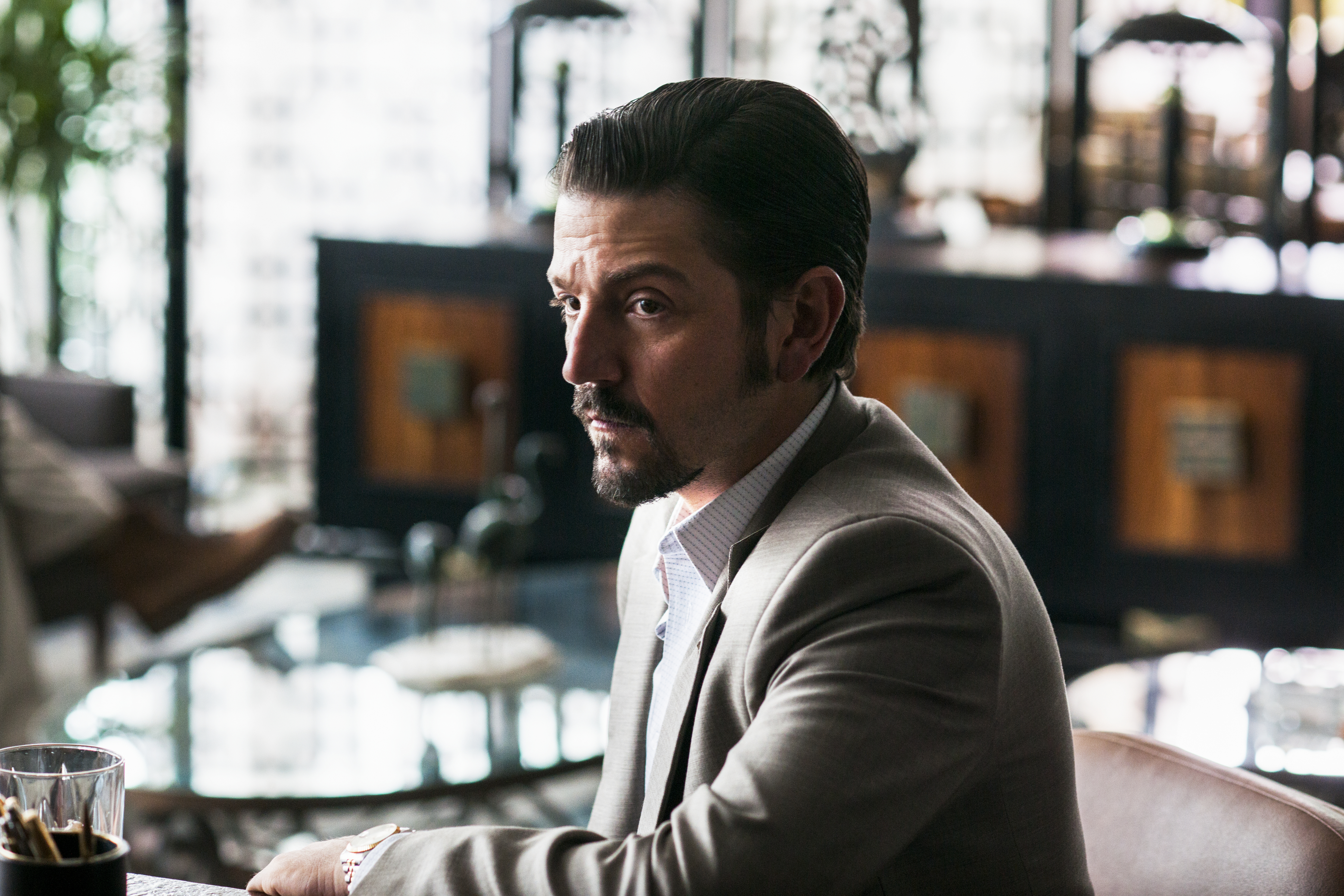Diego Luna Talks ‘Narcos: Mexico’ and Why Trump’s Wall Is ‘Not Going to Stop Anything’ (EXCLUSIVE)
By Nick Vivarelli
LOS ANGELES (Variety.com) – In “Narcos: Mexico,” which Netflix will release Nov. 16, Diego Luna takes on the role of Guadalajara cartel leader Miguel Ángel Félix Gallardo, considered the founder of the modern Mexican drug trade. Gallardo is currently behind bars in Mexico for the murder of DEA agent Enrique “Kiki” Camarena, played on the show by Michael Peña.
Luna and Peña made the trek to Italy’s Lucca Comics & Games, where Luna spoke to Variety about the show’s relevance in shedding light on the drug trade and on the escalating tensions at the border as President Donald Trump is building a wall and sending troops there.
What’s your impression of Lucca, this unique event dedicated to cosplayers and fandom in a medieval town?
I’m having fun. It was quite cool to do the Q&A with the audience…inside a church. It was a little surreal to me, you know, talking about “Narcos” inside a church. It was like being in ‘The Godfather.’ But it’s amazing, the city is beautiful and the event is a mixture of pop culture and tradition, an interesting thing to witness.
Speaking of “Narcos: Mexico,” I liked how it digs deep into both the criminal and law enforcement aspects and does this with a gritty naturalistic tone.
The idea of this show is to make sure you understand how the whole system works. It’s a series about many characters. It’s a series about a business. It’s not about one man and another guy chasing him. It’s a series about an entire structure built from every level of power….The idea is to understand a community, to understand a structure, an organization.
How did you prepare to play Félix, who was originally a corrupt cop and is essentially a shrewd businessman?
One decision I made is: I’m not going to go out there and interview people. I’m just going to work with the materials that have been written, that are out there already….Another thing that was important was to learn about that decade in Mexico, to learn about the ’80s, about the Mexico that he was living in. I remember that Mexico as a kid – I was born in 1979….So I went back to kind of reconstruct it from an adult perspective, to see all the things that my father didn’t want me to see…so I could start thinking: ‘OK, so that was the context in which he was living. Would he do that?’ But then it’s also just interpretation; it’s just my interpretation. And that’s what I like about the series…We are not claiming to do a documentary or a [meticulous] recreation of actual events. At the end of the day it’s fictional.
There have been rumblings in the Mexican press against you for doing “Narcos,” relating to how this could glorify the drug trade. Do you think once the show is released this type of accusation will die down?
I think so. It has already happened a little bit. I sat down a little bit with the [Mexican] press that got to see it, and all of a sudden they didn’t talk about that. This reaction was when the trailers came out…And I completely understand where it’s coming from because [in the trailer] there is a lot of content related to the drug-dealing war…But after seeing the 10 episodes, the only thing that is clear to me is that I don’t want to belong to this world! I don’t want to meet any of them, and wish I had no connection with them….I respect every point of view, especially in Mexico where we are living the violence caused because of this. The only thing I don’t respect is when I hear that we shouldn’t talk about this. To me that is very, very dangerous.
“Narcos: Mexico” shows some complex dynamics between the U.S. and Mexico during the 1980s. Today, with Trump’s border policy, there is a high level of tensions between these countries. Do you think it could help gain some insights on these tensions?
The polarizing rhetoric that is dominating the debate today is very dangerous….The case of Kiki Camarena is quite interesting to analyze and understand why and where we are today in terms of the relation between our two countries…Because, yes, you [can] blame Donald Trump, but our country can also be blamed for being so weak, for not having a voice and being clear….This [criminal] structure that was built in the ’80s…it wasn’t just the drug dealers that were involved It was the politicians, it was the police, it was the military on both sides of the border…So, yes, this is a good case to start asking ourselves how much all of us are involved together in the problem because once we recognize that, then we can all be part of the solution, which is certainly not a wall.
Why would the Trump wall not work?
A wall is not going to stop anything….They’ve put a rapid succession of drug dealers in jail, and that hasn’t stopped anything either because this is a system, a corrupt system, that has seeped into every level of power on both sides of the border….That’s what the series says: that we have to work together towards a solution. It’s not them against us…But I also want to say that this is just a series, and the beauty of this is that hopefully it can trigger curiosity in audiences to go deeper and go research a little more – to read about it, to see documentaries, to open the newspapers looking for clues about this situation and about our relations….While we are talking about this, 5,000 [U.S.] military [troops] are going south to the border in Mexico. So we do need to care about what’s happening in each other’s country because every decision we make is connected to the lives of others.

